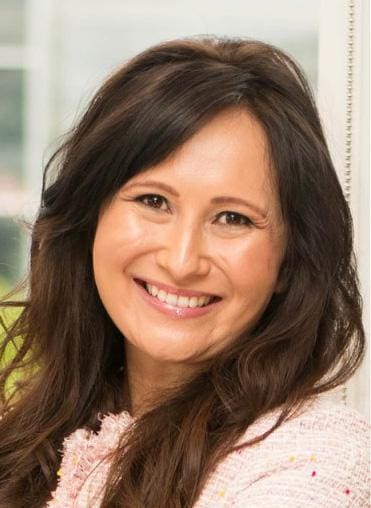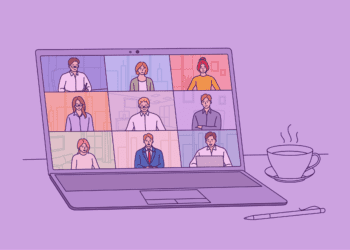Mary Shirley of Fresenius and the Great Women in Compliance podcast offers solid guidance for professionals new to compliance. The interviewing process can be daunting — but will be less so with advice from Mary.
Your hard work tailoring applications to the job and company has paid off and you’ve been invited to interview. Congratulations on being shortlisted! How do you increase your chances of clinching an offer? Here are share some tips for how to maximize this opportunity to shine and avoid common issues experienced in the interview process that may detract from your talents.
Preparation – Substantive and Logistical
Logistical
For initial interviews over the phone, it can be tempting to just rock up a few minutes before dialing and phone in with pen and paper at the ready. I recommend checking a couple of things well before the interview is due to start, preferably at least a day before.
A lot of companies use Skype for Business. Using the link within the calendar invitation is probably not going to work for you unless you also have a Skype for Business account. And no, it’s not a good idea to use the business account of the company you currently work for.
Scroll down (this part is key, especially if you’re viewing the details from a mobile phone) and look to see if a dial-in phone number has been included also. Use this to dial in. Not scrolling down further for these details makes you look unfamiliar with technology, or – perhaps even worse – totally disorganized when you email the interview organizer five minutes into the meeting claiming you can’t get in. On the odd occasion a dial-in number hasn’t been supplied and the account’s dial-in details only have the Skype for Business link that you can’t access (not unheard of, but certainly not the norm), make sure you contact the company at least a day in advance to let them know you appear to be missing dial-in information, so they have time to change the details to accommodate this – such as requesting the interviewer call you directly on your mobile.
Read all of the interview details at least twice. First, upon initial receipt of the invitation to interview, and again at least a couple of days before to make sure you’re not missing something key, such as the log-in details described above, whether it will be a video interview (therefore, you can’t attend in your dressing gown) and whether you need to actively dial in or you’re waiting on the interviewer to call you.
If the instructions were to actively dial in and you miss the first part of the interview because you were sitting there patiently waiting for the interviewers to call you, they’ll be left wondering how well you’ll fare in the office following instructions on a day-to-day basis. Do this every step of the way. The instructions may change depending on who is interviewing you and in which office they sit.
Research the hiring manager by reading their LinkedIn profile or company biography if they have one publicly available. It is not creepy to review the interviewers’ profiles on LinkedIn. You can expect they’ve probably checked your profile also. Look for common ground that might be worth slipping into the discussion to build rapport.
Substantive Preparation
Consider this: You’re asked a question, such as whether you have good organizational skills, and you respond:
- “I have excellent organizational skills, I am prepared for everything,” versus:
- “I demonstrated my excellent organizational skills by successfully coordinating 15 interviews and methodically filing 117 pieces of documentation by risk category/compliance program control for my manager to review as part of a risk assessment while I was an intern for the Great Women in Compliance Podcast. I further added value to this project by proactively setting up color-coded tabs and contents page references in the folders of hard-copy policies to make them more readily retrievable and, therefore, better organized for such reviews in the future.”
The thing with interviews is that they can be pretty nerve-wracking experiences, and relying on your mind to think at its best off-the-cuff in that environment is doing yourself a massive disservice when you have the chance to come up with examples that show how capable and experienced you are in advance.
Now, you can’t predict precisely what you’ll be asked about in an interview, so I recommend choosing several workstreams or projects you were responsible for or instrumentally involved in and jot down notes for reference during the interview if you’re on the phone or that you will read in private shortly before going into a face-to-face interview. These don’t necessarily have to be work-related if you’ve done something as a hobby or while at school that is a shining example of your competence at certain skills. Describe the project or background of the situation briefly for context, discuss what you were responsible for and what you achieved and list all of the skills that this accomplishment demonstrates so that when asked about relevant topics in interview, it will be easier for you to smoothly recall this work or situation and how it casts you in a good light.
Self-Awareness
There is general consensus to not bad-mouth former employers when in interview. In the same vein is generally talking about negative aspects of former roles and dwelling on common red-flag themes, such as difficulty dealing with other people at every previous workplace, which may make the interviewers suspicious that you lack interpersonal skills, for example. It’s OK to state the things that weren’t serving you well in previous roles, but ask yourself if there is a negative pattern emerging that may affect how you’re being perceived. Is there anything that was undesirable about your previous roles that you need to own and take responsibility for?
Rambling on when answering questions is a typical sign of nervousness, which is probably not putting your best foot forward. Someone who communicates succinctly and clearly is more likely to be what the hiring manager envisions as an ideal candidate than one whose answers are long and drawn-out and who doesn’t know when to stop. That’s where the preparation above can really help. As a general guide, make a statement, back it up with an example or other compelling commentary and stop within a couple of minutes. If you’re not sure you’ve made your point well enough or whether you should give additional examples, there’s no harm in asking “Did that answer your question?” or “Was that helpful, or would you like another example to support my thoughts on this?”
This tip is an oldie but a goodie: Record yourself – ideally in video rather than just audio – answering a potential question and play your response back to listen and observe how you’re coming across verbally and physically. This serves you in many different ways, including helping to identify whether there is anything you’re doing subconsciously that could hurt your credibility, belie a lack of confidence or convey something negative through your body language. Some candidates inadvertently start dominating the session, perhaps in a misguided attempt to demonstrate prowess or confidence.
There’s nothing wrong with being confident, but if it appears you’re the one interviewing the hiring manager/HR, that’s probably going a step too far. Let the interviewer lead. This old recording trick isn’t just for traditional public speaking; it can also help you assess what’s holding your executive presence back, as well as to prepare for an interview.
Closing Out the Interview
Some hiring managers consider it a deal breaker if the candidate does not have any questions to ask at the end of an interview. If your prepared questions were answered naturally in the course of earlier conversation, make sure to ask another intelligent question or two that will help you learn more about whether it’s the place you really want to work or that will help demonstrate your interest/suitability for the position.
Another deal breaker I’ve heard of it is not sending a thank-you note to interviewers shortly after attending an interview. Interestingly, in New Zealand, where I come from, it is not common to send a thank-you note after a job interview. In fact, the first time I heard of this when living in Singapore, I fell about laughing, thinking it sounded like a stage 2 clinger move, while my American colleagues looked at me as if I had two heads for finding the note creepy instead of customary.
Ask mentors, former managers, family friends or others in your life with more work experience than you if it’s customary to seek out contact details and write a thank-you note in your jurisdiction if you’re not sure. Better to check than be automatically excluded for something so simple to do.














